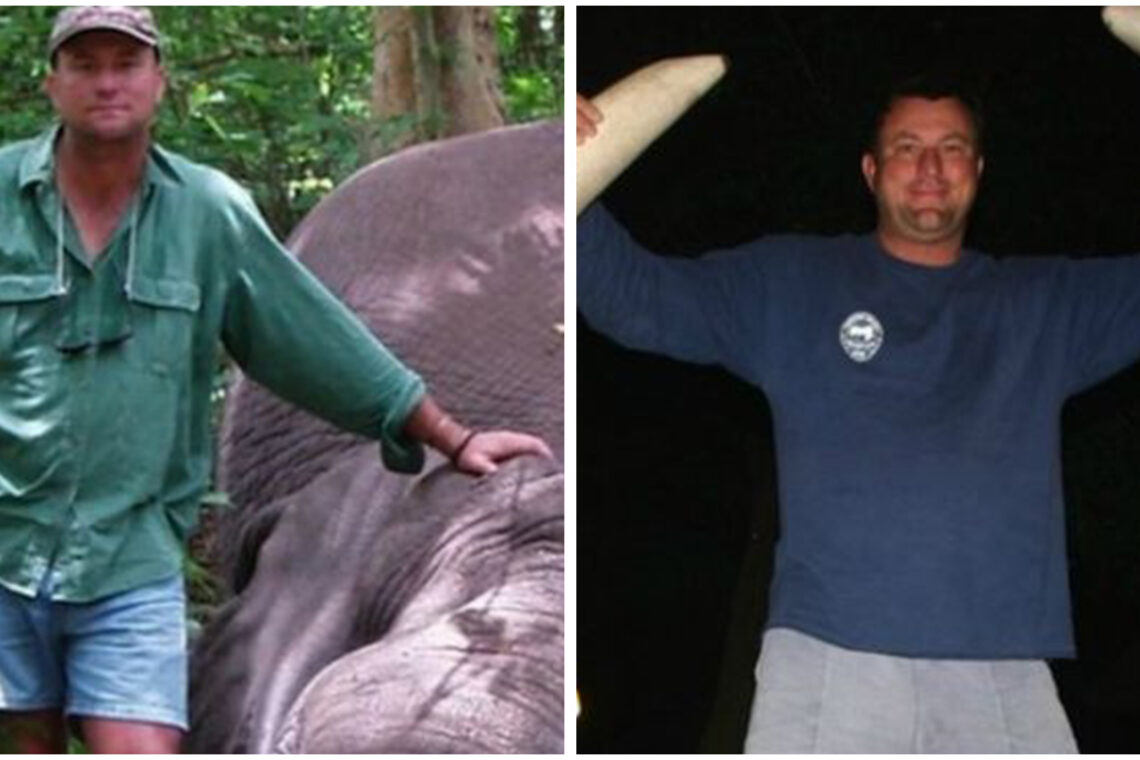
A seasoned hunter who spent nearly three decades dedicated to hunting and organizing game expeditions has passed away after a tragic incident involving an elephant. Theunis Botha, who began hunting in 1989, established a career in the hunting business and ultimately managed several private hunting reserves across parts of Africa. His life was one of adventure and often controversy, as he built a business around big-game hunting, a practice he was passionate about.
Botha’s introduction to hunting began as a means to support his education. By organizing and guiding hunting tours, he found a way to fund his schooling, and soon it became not only his livelihood but a way of life. After completing his studies, he and his wife launched a hunting farm. Over time, his operations expanded as he opened private hunting properties across Zimbabwe, Botswana, and South Africa, where he catered to clients from around the world seeking to participate in African big-game hunting.
During one of his recent guided hunting tours near Hwange National Park in Zimbabwe, Botha led a group of hunters in search of their prey. Hwange National Park, renowned for its vast wildlife population, holds a substantial number of elephants, and encounters with these large animals are not uncommon. While traversing an area frequented by breeding elephants, Botha and his group encountered a herd, which reportedly became agitated upon noticing the hunters.
Three elephants from the herd began charging at the group. In the midst of the chaos, one elephant used her trunk to lift Botha. Acting quickly, another member of the group fired at the elephant in an attempt to protect him. Tragically, the elephant collapsed, falling directly on Botha, causing fatal injuries. The father of five lost his life in the incident, leaving behind his family and a legacy intertwined with the controversial world of big-game hunting. News of his passing was confirmed by his eldest daughter.
Botha’s hunting expeditions were particularly known for the “Monteria hunt,” a hunting style originating in Europe. This method involves using packs of hounds to chase and drive animals, such as deer and wild boar, toward a line of hunters. When the prey is driven out by the hounds, hunters have an opportunity to take their shots. Known for his expertise in this style, Botha garnered a dedicated clientele who appreciated his unique approach to hunting.
Botha’s career in hunting began following his service as a sergeant in the South African infantry. His experience in the military seemed to shape his approach to hunting, bringing discipline and strategy to his expeditions. As his reputation grew, he developed a network of clients and associates who frequently hunted with him. Many of his clients regarded him as a knowledgeable guide with a distinctive sense of humor, and his influence in the hunting community extended beyond just his skill with a rifle.
Upon news of his death, several friends and colleagues expressed their condolences. One of his friends, Steve Scott, announced the tragic news online, while Kuronda Safaris, a Zimbabwe-based company that had previously collaborated with Botha, paid tribute, calling him a man with a “fantastic sense of humor.” Botha’s unexpected passing left many in the hunting community mourning the loss of a figure who had been deeply involved in their world.
While Botha’s life revolved around hunting, a practice he viewed as a tradition and a sport, it is an activity that has faced growing scrutiny and opposition. Critics of big-game hunting argue that it contributes to the decline of animal populations and promotes unnecessary violence against wildlife. This tragic incident has ignited further debate over the ethics of hunting, especially in regions where species like elephants are vulnerable due to habitat loss and poaching pressures. For many, Botha’s death serves as a somber reminder of the risks involved in such pursuits, raising questions about the future of hunting in a world increasingly conscious of wildlife conservation.
While those close to him celebrate Botha’s adventurous spirit and his contributions to the hunting community, others reflect on the broader implications of big-game hunting. This event highlights the complexities surrounding wildlife tourism, where individuals seek to connect with nature in vastly different ways, from photographic safaris to hunting excursions. Some advocates argue that hunting, when regulated, can contribute to conservation funding and local economies, while critics maintain that non-lethal forms of interaction with wildlife are more sustainable and humane.
Botha’s passing has added another layer to the ongoing discussion about the role of hunting in modern society. As countries and conservationists work to find a balance between preserving wildlife and accommodating human interests, cases like Botha’s underscore the unpredictable dangers associated with big-game hunting. The legacy of hunters like Botha brings to light the enduring conflict between tradition and conservation, as well as the personal risks that come with pursuing wildlife in its natural habitat.
In the wake of his death, Botha leaves behind a complex legacy, intertwined with both admiration and controversy. For those who knew him, he was a skilled hunter and a friend. For others, his life and career represent a divisive chapter in the story of human interaction with wildlife. Botha’s life, and its untimely end, encapsulate the inherent risks of engaging with nature on its own terms, as well as the ethical dilemmas that continue to surround big-game hunting in our world today.